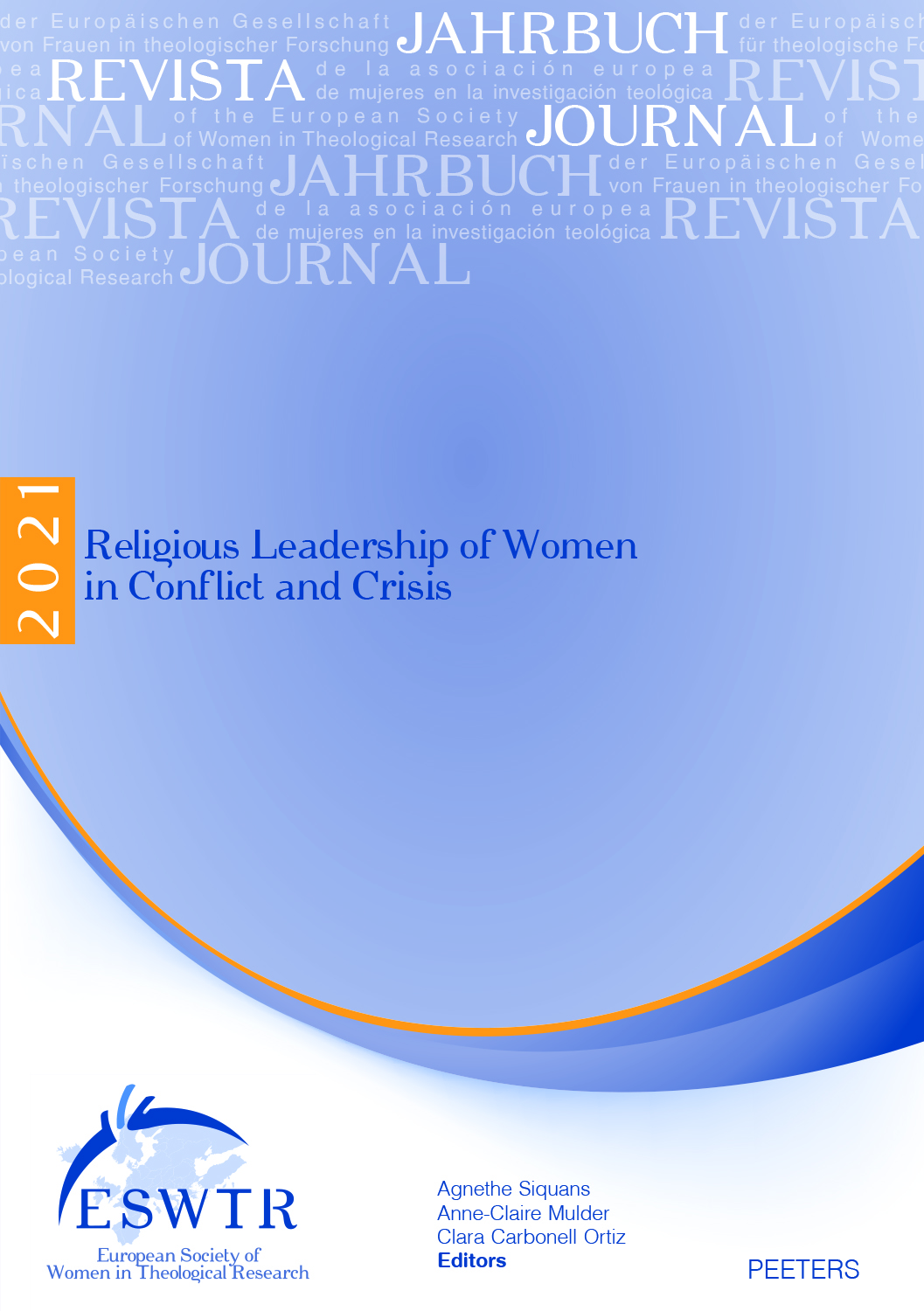 previous article in this issue previous article in this issue | next article in this issue  |

Preview first page |
Document Details : Title: Liderazgo protestante femenino, un desafío desde la Reforma Author(s): SALAS MOLINA, Natalia Journal: Journal of the European Society of Women in Theological Research Volume: 25 Date: 2017 Pages: 131-141 DOI: 10.2143/ESWTR.25.0.3251308 Abstract : Miles de mujeres cristianas y hombres en latinoamericanas desconocen el alcance de la Reforma, como tampoco su legado en las construcciones de género y el posicionamiento femenino. El liderazgo religioso es un desafío constante para aquellas osadas mujeres que intentan alcanzar la cima. La Reforma ha sido un apoyo y a la vez un obstáculo para ellas gracias a su herencia en patrones de género. Ejercer roles femeninos de liderazgo es una tarea que ha sido invisibilizada en las diversas áreas sociales y presenta distintos grados de dificultades en las instituciones eclesiales. Cuando las mujeres descubren que es un espacio donde podrían participar se encuentran con el peso cultural de las exégesis bíblicas misóginas, con la tradición del patriarcado sobre el poder religioso y con mandatos sociales que refuerzan la idea que las mujeres están en lo privado-reproductivo y no en lo público-reconocido. Abrir espacio de poder eclesial para las mujeres es una tarea difícil ya que se requiere no sólo alcanzar el liderazgo, sino que hacerlo desde las competencias de su género, para seguir plasmando un evangelio inclusivo, democrático, amable y generativo. Thousands of Christian women and men in Latin America do not know the reaches of The Reform, and they do not know its legacy in the construction of gender and the feminine position. Religious leadership is one of the hardships that brave women try to scale. The Reform is both their aid and hindrance, because of their inherited gender patterns. Exercising feminine leadership roles is something that has been occulted in many social areas and it presents a difficulty to ecclesiastical institutions. When women discover it to be a place in which they can participate, they also discover the cultural weight of misogynistic biblical exegesis which goes with the tradition of masculine control over religious power, keeping women in the private-reproductive ambit and not the public-recognised ambit. Opening up a place for women within ecclesiastical power is a difficult task because it not only requires reaching leadership, but also doing so through the competences of their gender, so as to make an inclusive, democratic, loving, and generative gospel. |
 |


